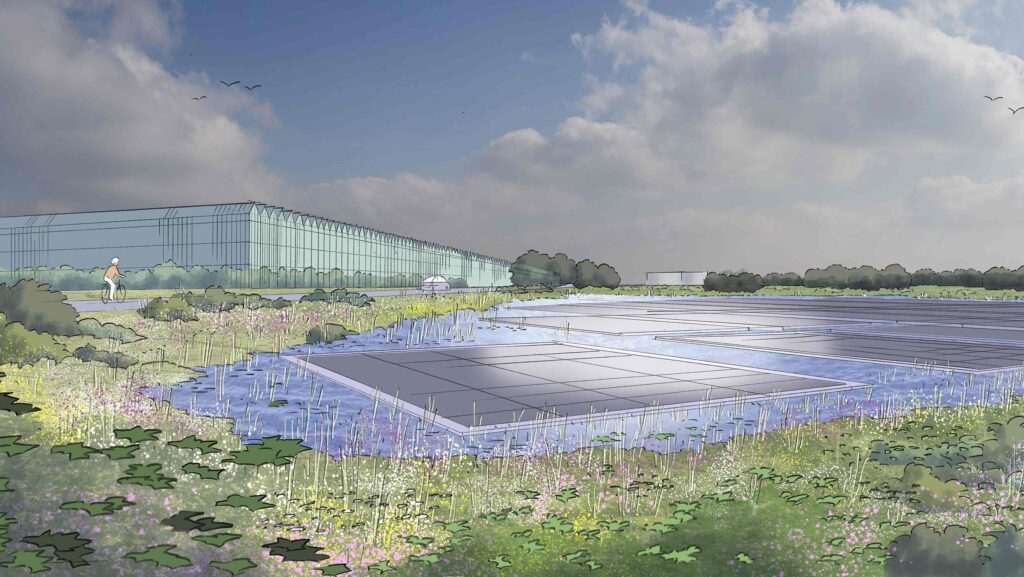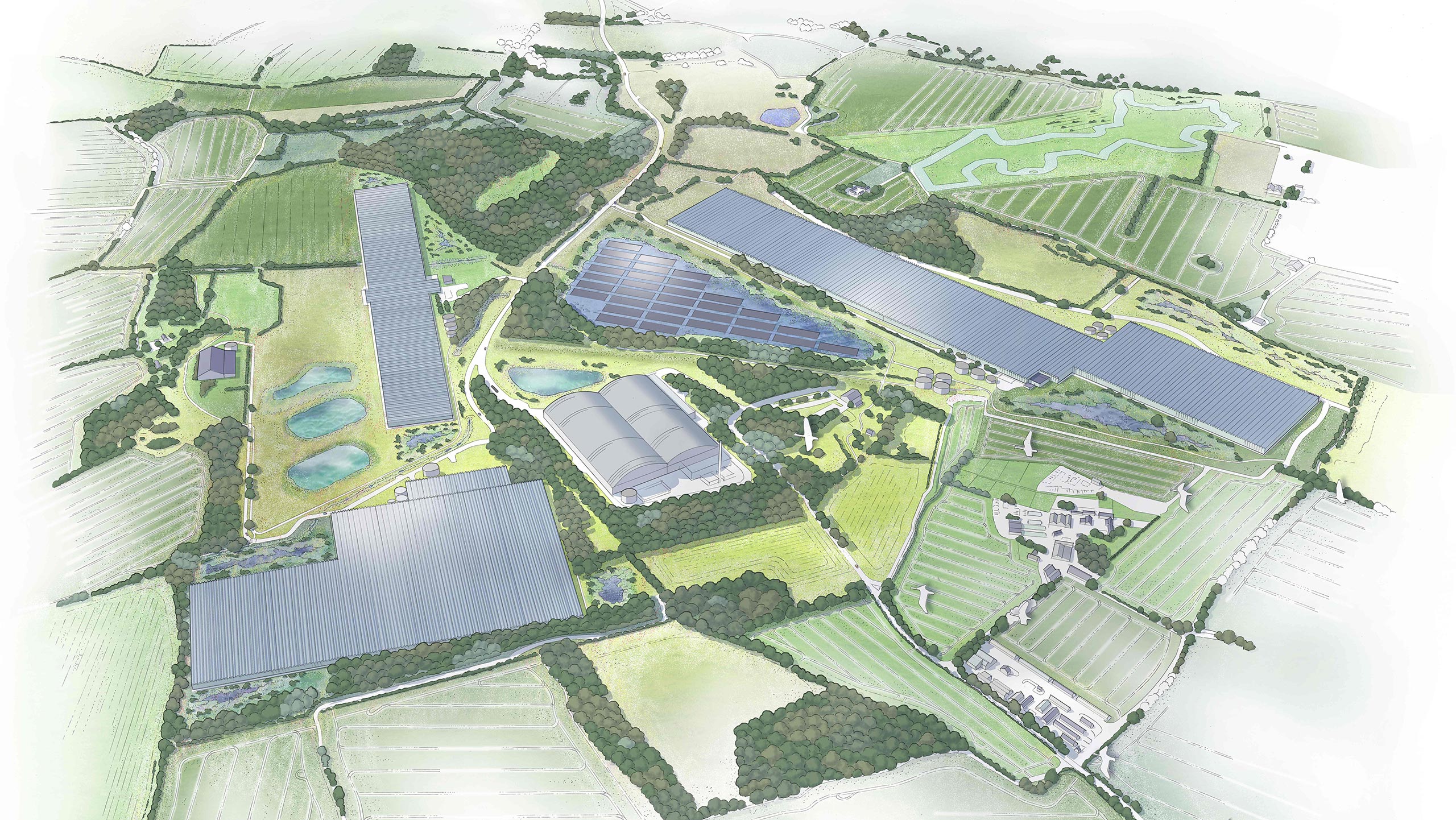Mega greenhouse could be major boost to UK food security
 © Rivenhall Greenhouse
© Rivenhall Greenhouse Plans have been submitted to Essex County Council for a new 40ha glasshouse complex which, the developers say, will be the second largest in the country, able to produce some 30,000t of tomatoes a year.
The project, led by Rivenhall Greenhouse, involves siting the mega-glasshouse on reclaimed land beside a new waste recycling plant in north Essex.
This plant is currently being built by waste management company Indaver, and it is envisioned that it will provide all the heat, carbon dioxide and electricity needed for significant food production.
Project director Ed Moorhouse says the Rivenhall development, if approved by planners, will “set a new benchmark for UK horticulture, reinforcing UK food security in an increasingly uncertain world”.
He anticipates the first vine crops – including tomatoes, cucumbers, peppers and chillies – could be harvested within three years.
An adjacent vertical farm would also producer 375t of lettuce a year.
Food security
The whole project depends on securing planning permission and raising sufficient funds – the total projected cost is put at more than £150m.
But Mr Moorhouse is confident the project team have a compelling case, suggesting that, once fully operational, the site could replace about 7.5% of current tomato imports with domestic supplies.
“The current supply chain is very fragile,” he told Farmers Weekly. There is a real need to re-shore our fruit and vegetable production.”

© Rivenhall Greenhouse
In particular, he points to the narrowing “pollination window” in continental Europe, where rising temperatures associated with climate change reduce the time for pollinators to “do their job”.
Last year’s destructive flooding in Spain served as another warning, while the recent power outages across the Iberian peninsular emphasised the risks of relying on food supplies from that area.
Planning permission
Getting planning permission for four glasshouses and packhouses on the site – occupying the equivalent of 56 Wembley Stadium playing surfaces – will be a challenge, especially given the resistance emerging to other so-called “mega-farms” in eastern England.
But Mr Moorhouse is adamant that, as price takers from the supermarkets, fruit and veg growers need economies of scale to remain viable.
The glasshouses would incorporate integrated pest management, while full “biodiversity net gain” offsets would be implemented.
The collaboration with Indaver would also lead to the creation of more than 400 full-time jobs on site, and a further 300 indirect jobs in the wider supply chain, he claims.
